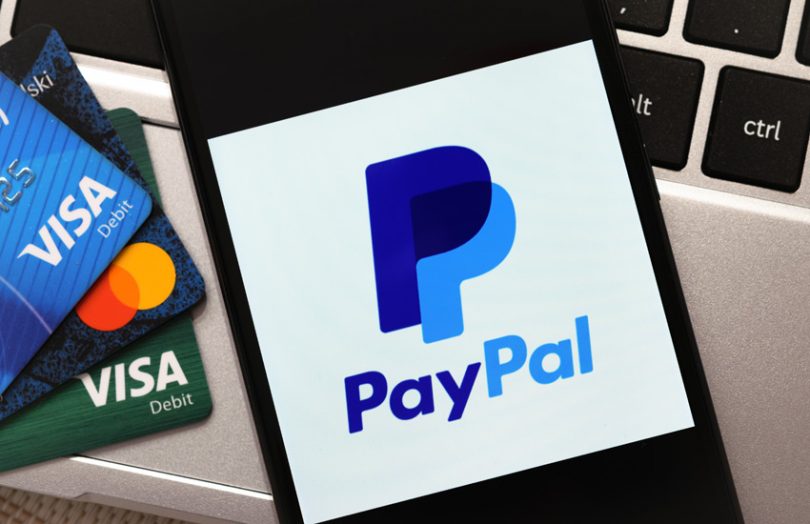During yesterday’s earnings call, PayPal’s President and CEO Dan Schulman spoke about the strong response to the initial rollout of PayPal’s cryptocurrency offering. It also appears that once digital currencies in the PayPal wallet can be used for retail payments, the cost savings won’t be passed on to merchants. Not initially anyway, based on brief comments. The full transcript is below.
He said the waiting list for users to sign up to be able to buy and sell cryptocurrencies is two to three times what was expected, and people who bought crypto check their wallets several times a day. Given the demand already seen after rolling out to 10% of its U.S. base, it is increasing its daily limit from $10,000 to $15,000 per day.
Where do the cost savings go?
Heath Terry of Goldman Sachs asked how digital currencies would impact payment costs and whether it would be similar to ACH or debit funding. This is relevant for users paying retail merchants using cryptocurrencies. Schulman only partially answered, but it would seem the cost reductions will not be passed on.
Stepping back, for many conventional payments, PayPal would have to pay fees to the big card providers. That’s where a reasonable proportion of the 2.9% acceptance fees charged to merchants goes. Whereas with digital currencies, there are no card provider fees. However, PayPal will provide instant settlement at a fixed exchange rate, which exposes the company to some volatility risk. But doubtless, there will be margins on that, in the same way as the fiat currency exchange rates offered by PayPal are not the tightest.
Schulman’s limited comments imply PayPal may keep the 2.9% merchant fee and there are “no incremental charges”. He stated, “it is a lower cost funding mechanism for us in terms of those transactions.” We have contacted PayPal for confirmation, although we think his wording is clear. The story will be updated with any response.
Given PayPal has a massive network of retailers, that will work for a while. But it’s good news for specialist cryptocurrency offerings such as Bitpay, which offers merchant fees of just 1%. For merchants, it won’t be worth the cost or hassle of integrating with a specialist solution if cryptocurrencies account are a small proportion of their revenues. But for cases where the digital currency ratio is significant, using a specialist provider could pay off quite quickly.
The PayPal CEO also commented that the two solutions already announced – buying and selling digital currencies and merchant acceptance next year – were only the first two products.
Transcript of Dan Schulman comments – President & CEO
Clearly, the world is rapidly moving from physical to digital. And that’s so true for payments and financial services. My conversations with central banks, with the regulators, with a number of folks in the crypto field, there’s no question that digital currencies are going to be rising in importance, having increasing functionality and increasing prominence. CBDCs, from my perspective and all my conversations, are a matter of when and how they’re done, not if.
And I think that our platform with its digital wallets and the scale that we have right now can help shape the utility of those currencies that can range from interoperability between wallets, between the currencies themselves, and importantly into our network of merchants for commerce. And I do think that our platform and all the new digital infrastructure that we’re putting in place right now can help make that management and movement of money more efficient, and less expensive and faster.
Just in terms of what we’ve introduced with buy and sell, we did a lot of research on that. Our base is very eager for us to offer these capabilities. It really came up very high on their wish list and we are seeing that come in to fruition very quickly.
Now, we’ve only rolled this out to 10% of our base. We did that a couple of days ago, but our waiting list was two to three times of what our expectations were. We’re going to take up our $10,000 limit per day to $15,000 per day, based on the demand that we’re seeing and we’ll roll out to 100% in the U.S. in the next two to three weeks.
Then we’re going to expand internationally and we’ll expand into Venmo in the first half of next year. So that’s what we’re starting off with. And we’re seeing people who have already bought crypto open their wallet several times a day to check on what’s happening with their crypto investments. We’re beginning to already see some halo effects that go on with that.
But what I’m really excited about is what we’re going to introduce next year, which is, I think going to dramatically increase the utility of cryptocurrencies by enabling somebody who holds a cryptocurrency in a PayPal account to instantaneously transfer that crypto into fiat currency at a set rate.
So, volatility is taken out of the equation. No incremental fees charged for them to do that transaction from crypto into a fiat and then immediately settle in fiat with all 28 million of our merchants at our current take rates.
And so you have no additional integration needed at any of our merchants and this is just an elegant way of using cryptocurrencies as a funding mechanism. And yes, it is a lower cost funding mechanism for us in terms of those transactions. But that’s just the start of things that we want to go and do with crypto capabilities.
Over the course of the next year, you’ll see us move into a couple of different areas. Those are the only two we’re talking about right now. But I see a lot of interesting things we can do with cryptocurrencies, with functionality, increasing functionality, and again, working hand in hand with regulators every step of the way, which is so important and what they expect from us in order to be a market leader in the digital currency space.







